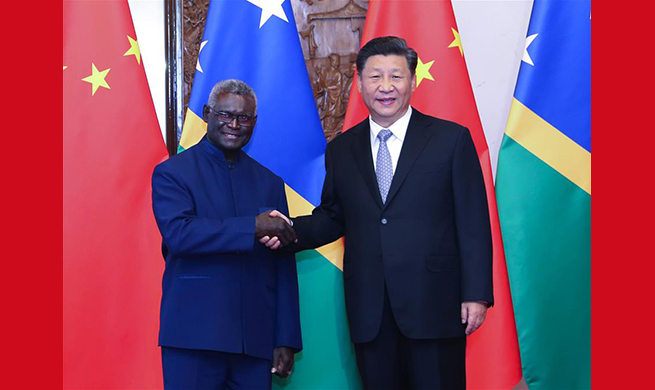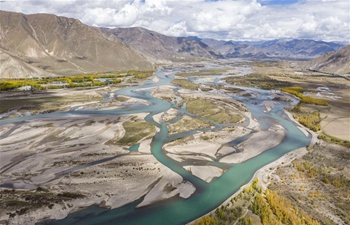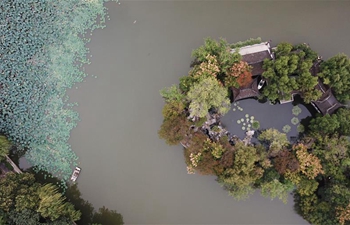by Nguon Sovan, Mao Pengfei
SIEM REAP, Cambodia, Oct. 9 (Xinhua) -- Ministers from the Association of Southeast Asian Nations (ASEAN) vowed here on Wednesday to work together towards a haze-free region, according to a joint statement.
The statement was released after the ministers responsible for the environment, and for land, forest fires and haze, from ASEAN member states concluded their two-day meeting on environment and transboundary haze pollution control.
"The ministers expressed concern over the severity and geographical spread of the recent smoke haze affecting various ASEAN countries in the northern and southern ASEAN," it said. "They also expressed sympathy to the millions of people affected by the haze."
The statement said ASEAN countries pledged to remain vigilant and to monitor and step up their haze preventive efforts to minimize any possible occurrence of transboundary smoke haze during periods of drier weather.
It added that the ministers noted the ASEAN Specialized Meteorological Center's efforts to deliver objective and reliable services to the ASEAN region in weather and climate prediction, and in monitoring, assessment and provision of early warning for transboundary haze.
ASEAN member states signed the ASEAN Agreement on Transboundary Haze Pollution (AATHP) in June 2002, which entered into force a year later.
"The ministers reviewed the implementation of the AATHP and reaffirmed their commitment through concerted national efforts and regional cooperation to effectively implement the AATHP and the Roadmap on ASEAN Cooperation towards Transboundary Haze Pollution Control with Means of Implementation to achieve a Haze-Free ASEAN by 2020," the statement said.
"The ministers recognized the need to expedite the final review and evaluation of the implementation and achievement of a haze-free ASEAN," it added.
They also recalled the commitment and guidance of the ASEAN leaders towards the establishment and full operationalization of the ASEAN Coordinating Center for Transboundary Haze Pollution under the AATHP, the statement said.
It added that the center will provide a strategic framework for the implementation of collaborative actions to address transboundary haze pollution in the ASEAN region.
The ministers also commended the Sub-Regional Ministerial Steering Committee on Transboundary Haze Pollution in reaffirming their readiness to provide assistance such as deployment of the technical resources for firefighting assistance on emergency response situation if requested.
Cambodian Environment Minister Say Samal said haze has adversely affected the natural environment and threatened the sustainable development and management of natural resources and biodiversity.
"Despite our enduring efforts, haze continues to plaque our region annually," he said during the meeting on transboundary haze pollution control.
"There is still much work to be done to eliminate haze all together. We cannot allow the environmental, economic and social damage caused by transboundary haze pollution to persist," he said.
He added that as ASEAN moves closer to the target of a haze-free ASEAN by 2020, it's necessary to step up joint efforts and to work collectively and progressively to prevent transboundary smoke haze pollution.
According to the statement, during the meeting, the ASEAN ministers also endorsed the ASEAN Joint Statement on Climate Change and approved the nominations of five protected areas in Thailand, Vietnam and Myanmar as ASEAN Heritage Parks this year.
The ministers also met their counterparts from China, Japan and South Korea at the 16th ASEAN+3 Environment Ministers meeting to discuss future strategic cooperation in the areas of biodiversity, climate change, environmental education, environmental science and technology, environmentally sustainable cities, and marine plastic debris, amongst others.
ASEAN groups Brunei, Cambodia, Indonesia, Laos, Malaysia, Myanmar, the Philippines, Singapore, Thailand and Vietnam.













